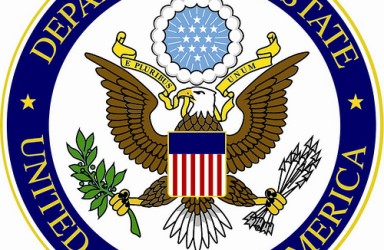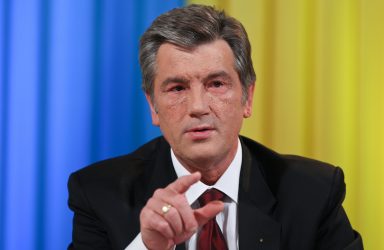‘Smart Power’: A change in U.S. diplomacy strategy
Smart power ‘is a concept that underscores the necessity of a strong military, but also invests heavily in alliances, partnerships, and institutions at all levels to expand American influence and establish the legitimacy of American action.’ More plainly, smart power is a combination of both hard and soft power approaches to diplomacy.
Iran shaken by electoral earthquake
This presidential election is like an earthquake which sets new limits for political factionism in Iran and without any doubt, this earthquake will be followed by many aftershocks shaking the ruling structure in the Islamic State.
European Parliament Turns to the Right
The dramatic success of Right parties, particularly Radical Right parties, in the recent European Parliament election indicates that voters are responding to insecurity related to the global economic crisis and immigration. European Parliament elections often act as a referendum on domestic politics, but they are also indicative of trends across Europe.
Culture and Global Environmental Governance: Harnessing the Power of Habits
Cultural dynamics reside at the heart of global environmental governance. The politics of the environment is – alongside questions of distribution/justice and physical sustainability – always a matter of meaning and purpose. And this should not come as a surprise.
Rethinking Republican Foreign Policy
The 2008 election was not a fluke. The days of Republican advantage on foreign and security affairs are over. The Democrats have learned to talk tougher on defense matters and to appoint Republicans and moderate Democrats to the senior posts. The Democrats now treat military preparedness, including Ronald Reagan’s missile defense, like the Republicans treat Social Security —with the self-preserving respect accorded electrified third rails.
On International Sponsorship
A relationship between international actors based on sponsorship differs from classical notions of clientelism and soft power, and is critical of exclusively statist conceptions of international politics. Sponsorship, I argue, becomes a mutual determinant and accelerator of globalisation.
Understanding the fall of the wall and other time tales
The 20th Anniversary of the Fall of the Berlin Wall offers has understandably generated a number of opportunities to look backwards to what happened, and to ask why it was that IR specialists seemed unable to see what was coming.
Neoconservatism and American Foreign Policy
Neoconservatism’s approach of democratising the Middle East via military intervention, tempering terrorism in the area, and dealing with Iran decisively has already formed the core of Obama’s policy package, all continuations from the Bush administration.
Ukraine’s Orange Revolution Five Years On
The story of how Yushchenko came to power with high domestic and international expectations that he largely failed to fulfill will be a fascinating area for future research.
Soft Power and the Persian Gulf
In October 2009, Iran was due to host athletes from the Muslim nations in order to celebrate “harmony” in the Islamic World. But Tehran has had to cancel the ‘Islamic Solidarity Games’ because Arab states demanded that the Persian tag should be removed from the competition’s medals and promotional posters – 27 countries led by Saudi Arabia refused to compete unless the famous waterway was called the “Arabian Gulf” instead of the “Persian Gulf”. What does this tell us about soft power and diplomacy in the region?





